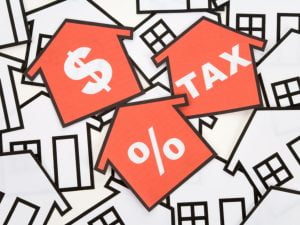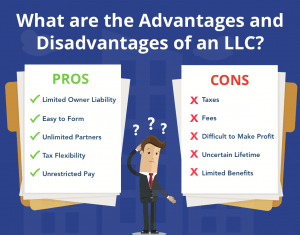2024 Guide to NYC Cooperative and Condominium Tax Abatement
Go Back To Previous PageAs a resident or property owner in NYC, you’ve likely noticed that everything is much more expensive than in other parts of the country, especially all the different taxes. So, it’s essential to know about any potential tax benefits you might have access to. And one of them is the NYC Cooperative and Condominium Tax Abatement program.
especially all the different taxes. So, it’s essential to know about any potential tax benefits you might have access to. And one of them is the NYC Cooperative and Condominium Tax Abatement program.
That name may sound confusing. But it’s pretty simple to understand. So we’ve put everything together to make it as straightforward as possible so it’s easy for you to learn what it is. In this article, you’ll know what that tax abatement is and how it works. And how you can see if you or your building qualifies.
So, to learn how to save money on your property, keep reading about the Co-op Tax Abatement Assessment in NYC.
What is a Co-Op Tax Abatement Assessment to reduce NYC property tax?
While it may initially seem tricky to understand, a co-op tax abatement assessment in NYC is straightforward. The tax abatement assessment primarily aims to allow co-ops and condominiums to create additional revenue. They use the savings for facility maintenance and improvements without charging the shareholders extra money. This additional revenue comes from New York now as tax abatement.
Once the property value is assessed, the tax reduction from the NYC property tax goes to shareholders of the co-op or condominium. New York City can then employ tax abatement after determining the value and the property taxes due. Authorities reduce the amount owed on property taxes depending on the assessed property value.
The co-op or condominium owner then collects these tax refunds. They use the money for maintenance and capital improvements, and the tax reduction is most commonly used for property owners.
They collect the tax benefit issued using the New York Cooperative and Condominium Property Tax Abatement.
What is the NYC Cooperative and Condominium Tax Abatement program reducing NYC property tax?
Property owners benefit from the tax abatement (or tax exemption), which provides them with a tax benefit from New York. This tax benefit is known as the “NYC Cooperative and Condominium Tax Abatement,” it applies to the average assessed value of the residential units within the entire property. The higher the average value, the smaller the reduction in property taxes the owners or shareholders will need to pay on the development.
The coop condo tax abatement helps individual apartment owners save 17.5% to 28.1% on property taxes. It applies to level the playing field vs. 1-3 family homes taxed significantly lower. There are four tiers of average unit value:
- $50,000 or less — 28.1% tax benefit
- $50,001 to $55,000 — 25.2% tax benefit
- $55,001 to $60,000 — 22.5% tax benefit
- $60,001 or more — 17.5% tax benefit
These values are current as of 2021 and taken directly from the New York City Department of Finance. They’ve remained steady for years, so expect them to stay roughly the same for the foreseeable future.
Now that you know what the tax abatement assessment is and how much benefit you can expect, let’s explore how the process works in NYC.
How Does a Tax Abatement Assessment Work in NYC?
Property owners and shareholders cannot decide to perform a co-op tax abatement assessment independently. Only the Board of Managers (co-op board) can authorize the assessment. When the board approves it, property owners will see a pair of line items appear on their bank statements.
First, shareholders will receive a debit on their account, which is the amount of the property value assessment itself. The debit comes from the number of shares assigned to each unit proportionally distributed afterward. Then, property owners (or the shareholders) will receive a credit for the tax abatement.
The credit will be from the New York City Department of Finance. This credit will depend on the above percentages and values described.
Due to the city’s proration and accounting, the debit and credit amounts will be the same. Therefore, shareholders or property owners will not have to pay additional money to the co-op once the tax abatement assessment has been processed and applied.
The Legality of a Co-Op Tax Abatement Assessment in NYC
Many think that something fishy may be happening and is not legal. However, co-op tax abatement assessments in NYC are perfectly legal and are becoming more common.
Co-op developments within the city can struggle to stay financially afloat. These tax abatement assessments help them pay their bills and costs without going under. So yes, they are legal and often even encouraged within NYC. The goal is to reduce New York City property taxes.
Who Qualifies for NYC Co-Op Tax Abatements?
Qualifying for a co-op tax abatement in NYC is complex, and not all buildings (even co-ops) will qualify. The property must meet the requirements before a building can qualify for tax abatement. We will quickly go over a summarized version of the conditions here.
You can check out the NYC Department of Finance for the requirements to qualify.
What if you don’t have a managing agent?
If you don’t have a managing agent, perhaps because you live in a self-managed co-op or condo building, the NYC Department of Finance recommends that you call 311 or email them to learn how to apply directly.
Requirements for the co-op tax abatement in NYC include the following:
- Co-op boards must notify the Department of Finance of any changes in ownership by February 15.
- The co-op unit must be the owner’s primary residence, and shareholders must inform the board if it is their primary residence.
- You must have purchased the unit before January 5 to receive the abatement for the upcoming year.
- Co-op owners cannot own more than three residential units per development.
- Property classified as a Class 2 property.
- Properties of the Urban Development Action Area Program do not qualify.
- Units owned by a business (including LLC) do not qualify.
- Properties helped by sponsors or their successors in interest do not qualify.
- Units owned by a trust are only eligible for tax reduction in certain circumstances.
Again, check with the NYC Department of Finance to confirm whether or not you and your building qualify for the tax savings.
Why Don’t Condos Have the Same Tax Abatement Opportunities as Co-Ops?
Condos in NYC do not take advantage of the same tax abatement assessments that co-op developments have access to. This all comes down to how condo ownership differs from co-ops and how New York views the different development types regarding taxes and finances.
In a building full of condos, the individual condo unit owners receive tax abatement on their quarterly property tax bills. The condo board prevents the tax abatement assessment from being used because of its relative lack of power regarding tax advantages.
How can condo owners check whether they’ve received the tax abatement?
Individual condominium unit owners can check their quarterly property tax bills online or at the mailed property tax bills.
If you have a mortgage, your bank will typically be responsible for paying property taxes on your behalf. When you have a mortgage, your bank may receive the paper property tax bill vs. you in the mail.
However, you can quickly check your property tax bill online using the link above. Input your full address, including the unit number.


